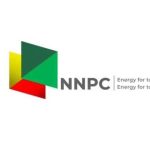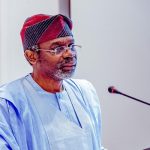By Damilola Olufemi
The National Association of Nigerian Students has urged the Federal Government to allow the Central Bank of Nigeria to act autonomously.
The association decried the economic challenges facing the country, especially the issue of hyperinflation, adding that “at the heart of this problem lies the need for the Central Bank of Nigeria to assert its independence and take decisive action to stabilise the economy.”
The association’s Senate leader, Akinteye Babatunde, and Adejuwon Emmanuel, Immediate past Coordinator of NANS Southwest and Media and publicity, in an interview with our correspondent on Thursday, noted that the apex bank should be able to make decisions independently, free from undue influence or interference from the government.
Hyperinflation is used to describe situations where the prices of all goods and services rise uncontrollably over a defined period. In other words, hyperinflation is extremely rapid inflation
“One of the fundamental problems plaguing Nigeria today is the lack of autonomy of the CBN. It’s primary objective is to achieve macroeconomic development, including price stability, full employment, and the regulation of the money supply.
“However, the current state of affairs, where the CBN depends on the government for decision-making, undermines its effectiveness in achieving these goals,” Babatunde said.
While noting necessary steps to effectively address hyperinflation and stabilise the economy, he said the CBN must be empowered to act autonomously.
He added that the apex bank has a wealth of expertise within its ranks, as well as access to knowledgeable professionals in tertiary institutions across the country.
“These experts are well-equipped to formulate policies and strategies to curb hyperinflation and regulate the economy effectively.
“Furthermore, the CBN should prioritise collaboration with other relevant stakeholders, including government agencies, academia, and the private sector. By leveraging collective expertise and resources, we can develop comprehensive and sustainable solutions to address the root causes of hyperinflation and promote economic stability,” he added.
He added that transparency and accountability are essential in ensuring the effectiveness of CBN policies and interventions.
The CBN should operate with utmost transparency, providing regular updates on its decision-making processes, policy actions, and outcomes. This transparency will foster public trust and confidence in the CBN’s ability to manage the economy effectively.
“It is time for Nigeria to embrace a more independent and proactive approach to monetary policy, one that prioritises the long-term prosperity and well-being of its citizens,” he noted.
The CBN had last week expressed concerns over the escalating foreign currency exposure of banks through their Net Open Positions.
Consequently, it issued a circular titled, ‘Harmonisation of Reporting Requirements on Foreign Currency Exposures of Banks,’ directing lenders to sell all excess dollar stocks to their customers.
In the circular, the CBN stipulated that the NOP limit for overall foreign currency assets and liabilities should not exceed 20 per cent short or zero per cent long of shareholders’ funds.








